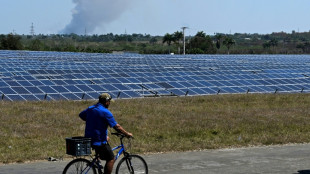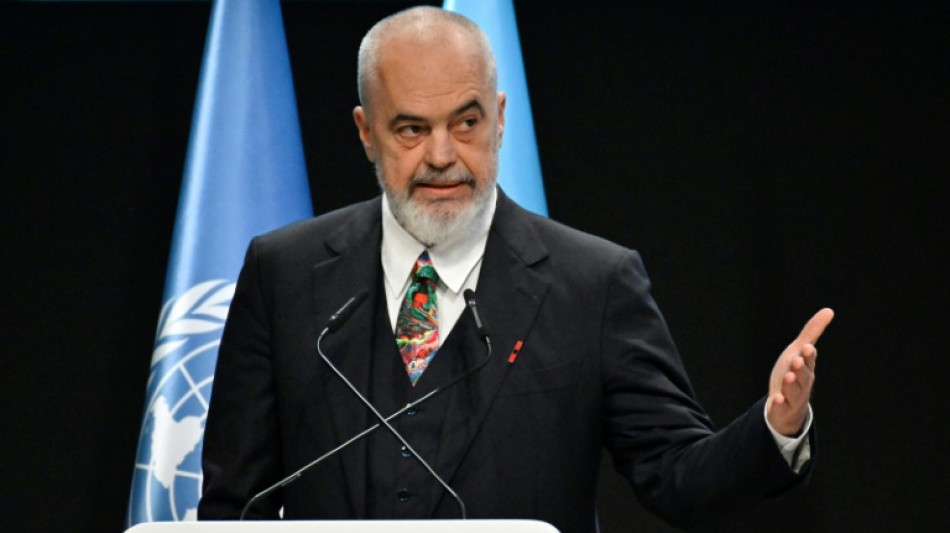
-
 England, Germany and Spain on mark in women's Nations League
England, Germany and Spain on mark in women's Nations League
-
Bayern's Musiala to miss Inter first leg with injury

-
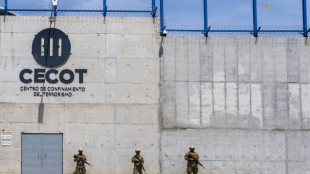 Judge orders return to US of Salvadoran man deported in error
Judge orders return to US of Salvadoran man deported in error
-
'Class' Freeman eases Northampton past Clermont and into Champions Cup quarters

-
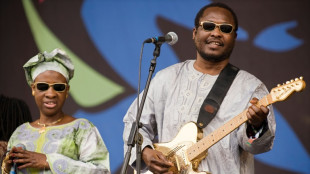 Amadou of Malian blind music duo dies aged 70
Amadou of Malian blind music duo dies aged 70
-
Freeman hat-trick eases Northampton into Champions Cup quarters with Clermont win

-
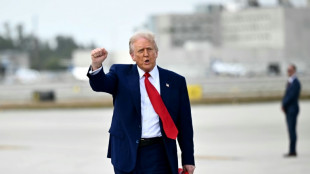 Defiant Trump dismisses stock market's tariff plunge
Defiant Trump dismisses stock market's tariff plunge
-
Musiala injury sours Bayern win at Augsburg

-
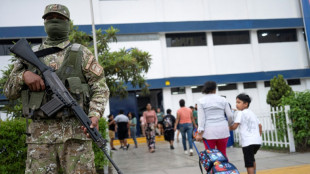 Peruvian schoolkids living in fear of extortion gangs
Peruvian schoolkids living in fear of extortion gangs
-
Top seed Pegula rallies to oust defending champ Collins in Charleston

-
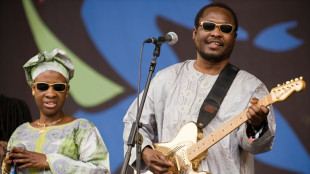 Amadou of Malian blind music duo Amadou & Mariam dies aged 70
Amadou of Malian blind music duo Amadou & Mariam dies aged 70
-
California to defy Trump's tariffs to allay global trade fears
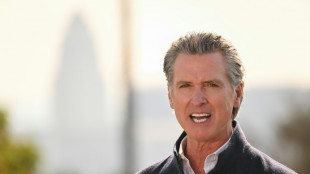
-
 Bayern's Musiala subbed off with injury days out from Inter clash
Bayern's Musiala subbed off with injury days out from Inter clash
-
Russian strike kills 16 in Ukraine leader's home city, children among dead
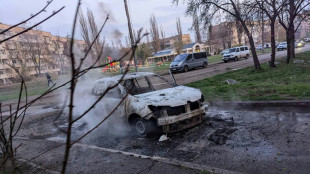
-
 NBA fines Grizzlies' Morant for imaginary gun gesture
NBA fines Grizzlies' Morant for imaginary gun gesture
-
Trump tariffs offer opportunity for China
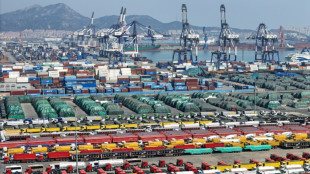
-
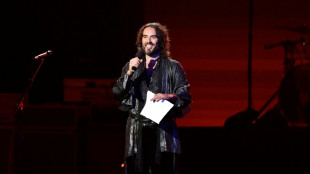 UK comedian Russell Brand charged with rape
UK comedian Russell Brand charged with rape
-
Marsh, Markram help Lucknow edge Mumbai in IPL

-
 Trump gives TikTok extra 75 days to find buyer
Trump gives TikTok extra 75 days to find buyer
-
Israel attorney general accuses PM of 'conflict of interest' in security chief dismissal
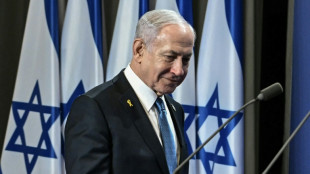
-
 Emery glad to see Rashford make landmark appearance
Emery glad to see Rashford make landmark appearance
-
Sean 'Diddy' Combs faces more charges ahead of criminal trial

-
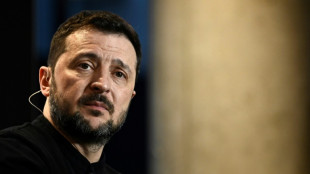 Russian missile strike kills 14 in Ukraine leader's home city
Russian missile strike kills 14 in Ukraine leader's home city
-
Trump's tariff Big Bang puts global economy under threat
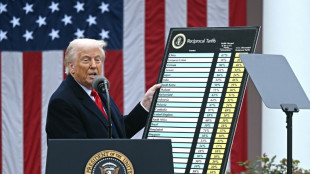
-
 I Am Maximus backed for National as Mullins hot streak continues
I Am Maximus backed for National as Mullins hot streak continues
-
2014 World Cup winner Hummels to retire at season's end

-
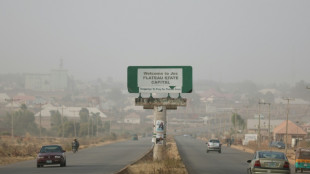 Intercommunal violence kills dozens in central Nigeria
Intercommunal violence kills dozens in central Nigeria
-
Nigerian, S. African music saw 'extraordinary growth' in 2024: Spotify

-
 Russell Brand: From Hollywood star to rape suspect
Russell Brand: From Hollywood star to rape suspect
-
France soccer star Mbappe unveiled in London... in waxwork form

-
 Trump goads China as global trade war escalates
Trump goads China as global trade war escalates
-
Israel expands Gaza ground offensive, hits Hamas in Lebanon
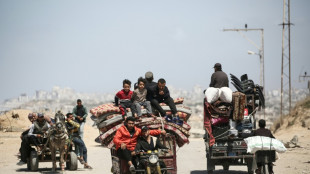
-
 TikTok faces new US deadline to ditch Chinese owner
TikTok faces new US deadline to ditch Chinese owner
-
US Fed Chair warns tariffs will likely raise inflation, cool growth
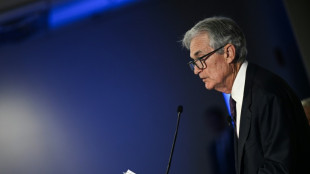
-
 Mbappe among three Real Madrid players fined for 'indecent conduct'
Mbappe among three Real Madrid players fined for 'indecent conduct'
-
How can the EU respond to Trump tariffs?
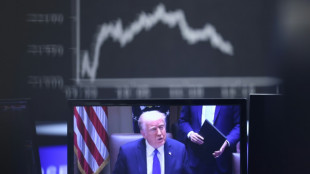
-
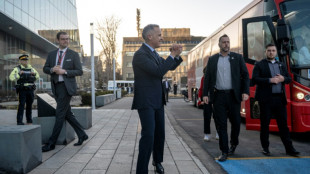 Canada loses jobs for first time in 3 years as US tariffs bite
Canada loses jobs for first time in 3 years as US tariffs bite
-
Real Madrid and Barcelona respect each other, says Ancelotti

-
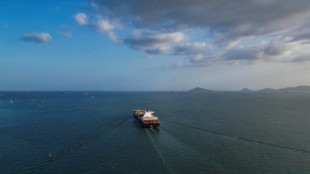 Nations divided ahead of decisive week for shipping emissions
Nations divided ahead of decisive week for shipping emissions
-
Trump goads China after Beijing retaliates in global trade war

-
 Arteta urges Arsenal to enjoy "beautiful" run-in despite injury woes
Arteta urges Arsenal to enjoy "beautiful" run-in despite injury woes
-
London mayor gets new powers to revive capital's ailing nightlife

-
 Italy's ski star Brignone takes on 'new challenge' after serious leg injury
Italy's ski star Brignone takes on 'new challenge' after serious leg injury
-
Amorim in a 'rush' to succeed at Man Utd

-
 PSG coach Luis Enrique targets unbeaten season
PSG coach Luis Enrique targets unbeaten season
-
Duterte victims seeking 'truth and justice': lawyer
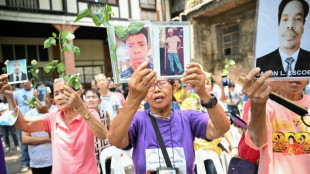
-
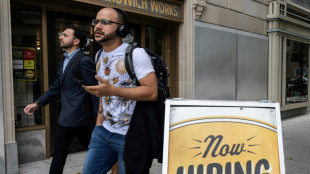 US job growth strong in March but Trump tariff impact still to come
US job growth strong in March but Trump tariff impact still to come
-
UK comedian and actor Russell Brand charged with rape
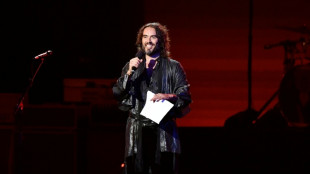
-
 Stocks, oil slump as China retaliates and Trump digs in heels
Stocks, oil slump as China retaliates and Trump digs in heels
-
Postecoglou 'falling out of love' with football due to VAR

| RBGPF | 1.48% | 69.02 | $ | |
| NGG | -5.25% | 65.93 | $ | |
| CMSD | 0.7% | 22.83 | $ | |
| SCS | -0.56% | 10.68 | $ | |
| CMSC | 0.13% | 22.29 | $ | |
| BTI | -5.17% | 39.86 | $ | |
| AZN | -7.98% | 68.46 | $ | |
| GSK | -6.79% | 36.53 | $ | |
| RYCEF | -18.79% | 8.25 | $ | |
| RELX | -6.81% | 48.16 | $ | |
| RIO | -6.88% | 54.67 | $ | |
| BP | -10.43% | 28.38 | $ | |
| VOD | -10.24% | 8.5 | $ | |
| BCC | 0.85% | 95.44 | $ | |
| BCE | 0.22% | 22.71 | $ | |
| JRI | -7.19% | 11.96 | $ |

COP29 fight for climate money 'humiliating': Bangladesh's Yunus
Bangladesh's interim leader on Wednesday slammed the "humiliating" fight for climate finance at the COP29 talks, demanding rich countries and emitters pay for the problems they caused.
Muhammed Yunus, who leads one of the world's most climate-vulnerable nations, said countries who bear little responsibility for global warming were being forced to haggle for help adapting to the consequences.
"I think that's very humiliating for nations, to come and ask for money to fix... (the) problem that others caused for them," he told AFP on the sidelines of UN climate talks in Azerbaijan.
"Why should we be dragged here to negotiate?" he added.
"You know the problem... it's not a fish market."
The comments illustrate the frustration of developing countries seeking substantially more money from rich nations to help them adapt to climate shocks and transition to cleaner energy.
Sharpening their focus, a new report warned that planet-warming carbon emissions from fossil fuels rose to record highs this year and much faster action is needed to meet climate pledges.
That means that to meet the Paris agreement's ambitious goal of limiting warming to 1.5 degrees Celsius, the world now needs to reach net-zero CO2 emissions by the late 2030s -- instead of 2050, the scientists at the Global Carbon project said.
"This is what the presidency has been promoting since the beginning of this year -- the time window is narrowing, shrinking -- and we need to act urgently," Yalchin Rafiyev, Azerbaijan's lead negotiator for COP29, told AFP.
"There are still possibilities for keeping 1.5C within reach", and striking a deal on climate finance "will definitely pave the way for us to realise this opportunity".
- 'Magic money tree' -
Negotiators still have a large mountain to climb on any deal, however, with a fresh draft Wednesday leaving most sticking points completely unresolved.
Most developing countries want an annual commitment of at least $1.3 trillion -- over 10 times what donors including the United States, the European Union and Japan currently pay.
The donor countries want others to join them in paying, particularly China and wealthy Gulf states, and are reluctant to promise large new amounts of public money at a time when they face economic and political pressure at home.
They want instead to promise private sector mobilisation, an option NGOs describe as "wishful thinking".
"They always like to look at the private sector as the magic money tree," said Debbie Hillier, global climate policy lead for Mercy Corps.
For developing countries already buried in debt, the aid must be in grants rather than loans.
Philip Davis, the prime minister of the Bahamas, said small island nations have spent 18 times more on debt repayment than they have received in climate finance.
"The world has found the ability to finance wars, the ability to mobilise against pandemics," Davis said.
"Yet when it comes to addressing the most profound crisis of our time, the very survival of nations, where is that same ability?"
With progress on finance moving no faster than on emissions, Albanian Prime Minister Edi Rama ditched his prepared remarks to complain that "our speeches full of good words about climate change, change nothing".
He skewered the many leaders who skipped the event, saying their absences added "insult to injury".
- Diplomatic tensions -
Hanging over proceedings was a brewing diplomatic spat between host Azerbaijan and France, whose ecology minister said she would not travel to Baku after "unacceptable" remarks by Azerbaijan's president.
The comments were in reference to bloody protests that rocked New Caledonia this year.
Relations between Paris and Baku are very frosty over France's longtime support for Azerbaijan's arch-rival Armenia.
Last year, Azerbaijan defeated the country in a lightning offensive when it retook the breakaway Armenian-populated region of Nagorno-Karabakh -- leading to an exodus of more than 100,000 Armenians.
Wednesday was not entirely without progress, though: next year's COP host Brazil formally submitted its updated climate commitments, pledging to reduce greenhouse gases 59-67 percent from 2005 levels by 2035.
The pledge would be ambitious "as long as the country strives for the highest end," said Karen Silverwood-Cope, climate director at WRI Brasil.
"If Brazil only meets the low end... the country will veer well off track from delivering on its climate goals."
S.Gregor--AMWN


